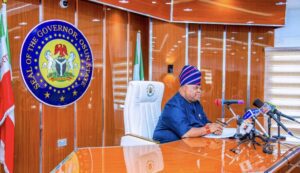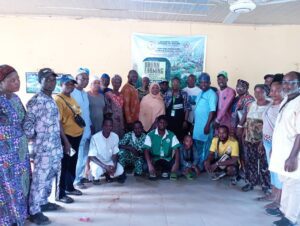CBN interventions well-thought-out responses — Nwanisobi
The Director of Corporate Communications, the Central Bank of Nigeria (CBN), Mr Osita Nwanisobi, says the apex bank’s 37 intervention programmes in the economy are responses to socio-economic situations and exigencies.
Nwanisobi spoke at an Editors Master Class with the theme: Central Bank of Nigeria Interventions as Fulcrum for Economic Diversification, organised by the Centre for Financial Journalism in Lagos.
CBN interventions are in healthcare, agriculture, creative industry and infrastructure, among others
Nwanisobi said the interventions were also in line with the pledge of the CBN Governor, Mr Godwin Emefiele, to run a people-centric central bank upon assumption of office.
He said that the interventions were a conscious effort by the CBN to ensure that all Nigerians, whatever their status, benefit from the economy.
The interventions, according to him, do not just happen, but are well-thought out responses by the CBN to exigencies, and practical efforts to diversify the economy.
He said the interventions were responses to market failures, stressing that no responsible central bank would fold its hands and watch the nation’s economy go down.
Nwanisobi who traced the evolution of interventions by the CBN from 1979, said the global financial crisis of 2008/2009 threw up multiple interventions by the CBN which also reflected the responses in other countries.
He argued that but for the CBN interventions, the economy would not have grown post-global crisis era.
“Interventions are necessary. Without interventions where would the Nigerian economy be by now?”, he asked rhetorically.
“Who would have thought that a time would come in Nigeria and the rest of the world that economies would experience total shutdown as we experienced in the case of COVID-19?
“Just imagine what would have happened if CBN did not respond with well-planned intervention in the containment of COVID-19 and the attendant financial crisis,” he said.
Mr Olabimtan Adebowale of the Development Finance Department of CBN, in his presentation, outlined the benefits of the various interventions which he described as “development finance interventions”.
Adebowale said they were well-planned and targeted at meeting specific needs, all aimed at growing the economy and improving the living standards of the people.
He said the interventions were meant to increase lending to high-impact and employment-elastic sectors of the economy, diversify economic base, create jobs and improve macroeconomic stability.
He said they were also to encourage exports and conserve foreign exchange reserves, expand output of agriculture, manufacturing and services sectors, provide access to affordable credit, and boost the capacity of MSMEs in priority sectors of the economy.
According to him, one of the interventions aimed at boosting local production and creating employment is the new financial instrument — “The 100 for 100 PPP – Policy on Production and Productivity”.
Under the policy, the CBN will advertise, screen, scrutinise and financially support 100 targeted private sector companies in 100 days.
The programme took-off on Nov. 1, and would roll over every 100 days with new set of 100 companies.
The master class also featured a presentation and practical session on onboarding of the eNaira.
Recall that the eNaira was launched on Oct. 25 by President Muhammadu Buhari to complement the physical naira and help deepen the digital economy space.
Mr Yusuf Abduljelil, in his presentation, said Nigeria was the first African nation to introduce a central bank digital currency.
The CBN official assured Nigerians that the eNaira platform had enough layers of encryption and integrity to protect it from hackers.
During the master class, participants were able to onboard seamlessly to the eNaira platform, following which it received positive reviews from them.




